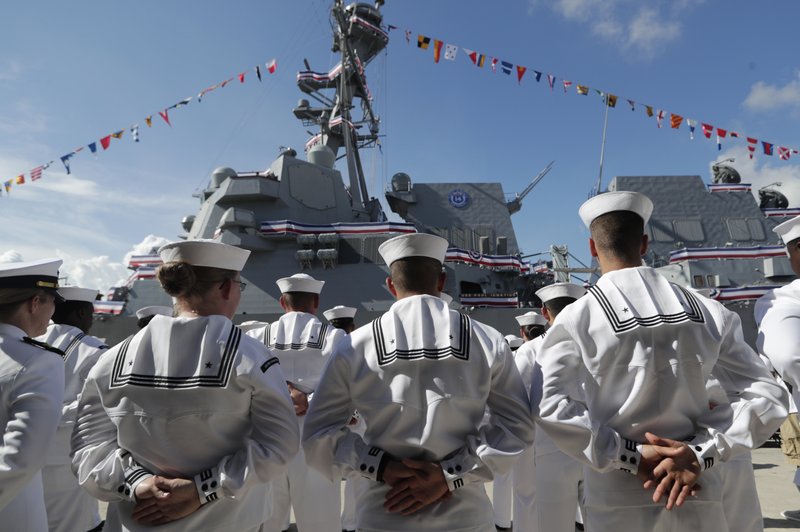The U.S. Navy is evacuating thousands of sailors from aircraft carrier USS Theodore Roosevelt in an attempt to contain the spread of the coronavirus on board the ship, Acting Navy Secretary Thomas Modly said Wednesday.

File photo
Briefing reporters by telephone from the Pentagon, Modly said nearly 1,000 personnel have already left the nuclear-powered aircraft carrier, which is now docking in Guam. "In the next couple of days, we expect to have about 2,700 of them off the ship."
According to Modly, there have been 93 positive tests on board the Roosevelt so far, with 86 of those service members exhibiting symptoms and seven having no symptoms. So far, 593 have tested negative. Nearly 1,300 crew members have been tested and some results are still pending.
"We identified and quarantined all those who were suspected of being in close contact with those that had tested positive," Modly said. All sailors with confirmed positive tests were removed from the ship and isolated immediately, he added.
News of a coronavirus outbreak on board the Roosevelt first emerged last Thursday, and the captain reportedly told the Pentagon earlier this week about the spread of the disease, calling for immediate assistance in quarantining the crew.
"We are providing the commanding officer what he has requested, and we are doing our best to accelerate the pace wherever we can," the acting secretary said.
Modly said the Navy "cannot and will not" remove all the roughly 5,000 sailors from the ship, adding that neither the ship's commander nor its medical officers had requested a total evacuation.
He said the aircraft carrier is comparable to a cruise ship only in the sense that "it's big and it floats and has a lot of people on it."
"This ship has weapons on it. It has munitions on it. It has expensive aircraft, and it has a nuclear power plant," the acting secretary said. "It requires a certain number of people on that ship to maintain safety and security."
The spread of the coronavirus on board the Roosevelt has become yet another demonstration of the magnitude of the coronavirus pandemic, especially its effect on the military.
What happened to the ship was brought under spotlight after the release earlier this week of an internal letter by the ship's captain, Brett Crozier, requesting Pentagon officials to provide additional resources for sailors aboard the ship who he believed needed to be quarantined -- particularly those infected.
"This will require a political solution but it is the right thing to do," Crozier wrote in a letter first obtained by The San Francisco Chronicle. "We are not at war. Sailors do not need to die. If we do not act now, we are failing to properly take care of our most trusted asset - our sailors."
Modly said Wednesday he was disappointed by Crozier's letter. "It's disappointing to have him say that," the acting secretary said, adding the Navy has been working "very, very hard" within the command structure to meet the needs from the captain and medical officers.
Navy officials initially believed a port call in Da Nang, Vietnam, between late February and early March might be related to the spread of the coronavirus among the crew members, but Navy Admiral Michael Gilday downplayed that hypothesis Wednesday at the briefing.
"We don't have any forensics to indicate" that the stop in Da Nang caused the virus' spread on the ship, Gidley said. All of the crew were tested for symptoms before returning to the ship, he added.
"Understanding who patient zero is is probably going to be an impossible task," the admiral said, citing the reason that sailors leave and board the ship frequently during its deployments.


